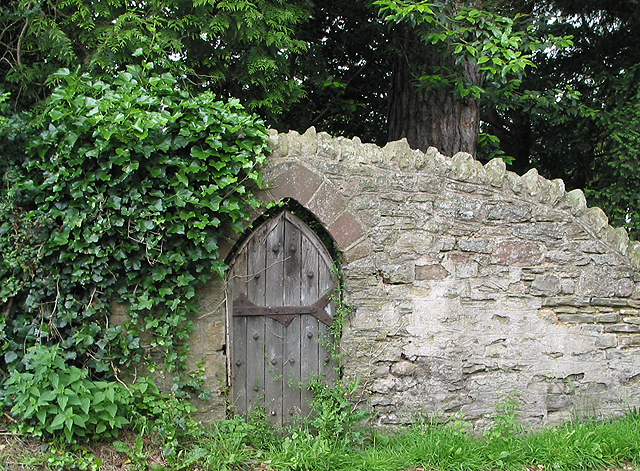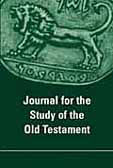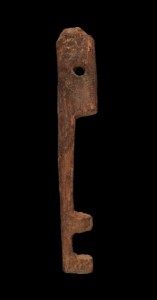The Bible mentions quite a few famous gardens: the Garden of Eden, the Garden of Gethsemane, the, the metaphorical garden in the Song of Songs, the vegetable garden of King Ahab. I think that our imagination of what a garden is like is too informed by modern values and doesn’t get the garden image quite right. When we hear the word, “garden,” we envision a small vegetable garden in the corner of a suburban yard or maybe a flower bed in front of Grandma’s house, when for the ancients, a garden would be exotic, expensive, private, and royal.
Gardens are for Kings
The word for “garden” (Heb. gan) appears 41 times in the Hebrew Bible. A related synonym for garden or orchard (Heb. gannah) appears 16 times. Notice how frequently these gardens are associated with kings:
- King Ahab wants a vegetable garden attached to his palace (1 Kings 21:2)
- King Manasseh is buried in the “garden of his house” (2 Kings 21:18)
- King Amon is likewise buried in the same garden (2 Kings 21:26)
- The soldiers of Jerusalem flee the city through a gate “by the king’s garden” (2 Kings 25:4)
- The “king’s garden” appears after the exile as a location in Jerusalem (Neh 3:15)
- In Persia, the “palace garden” is used for feasting (Esther 1:5; 7:7; 7:8)
The point of these examples is to show that gardens and kings go together. Gardens are luxury items, like having a swimming pool or putting green in your backyard. Not only that, but gardens likely require professional maintenance by full-time gardeners. Ok, so not absolutely every garden-owner was a king, but you’d at least have to be “very rich” (Daniel 13:1||Susanna 1:4). Gardens are not just for veggies and flowers, but also for tombs, especially tombs of kings. We find corroboration for this in an Egyptian “necropolis garden” (ANET 22).
Gardens are Private and Behind Walls
The “palace garden” of Ahasuerus in Susa, where the king himself eats lunch al fresco with his 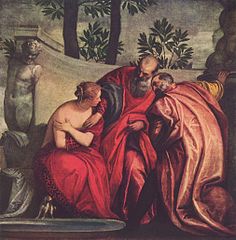 queen, would not be a public park. It would be a private enclave for the king alone, sort of like the papal gardens at Castel Gandolfo. What hints do we have to show gardens were private?
queen, would not be a public park. It would be a private enclave for the king alone, sort of like the papal gardens at Castel Gandolfo. What hints do we have to show gardens were private?
- Song of Songs mentions “a garden locked” (4:12)
- Walls are associated with the “king’s garden” at Jerusalem (2 Kings 25:2; Neh 3:15)
- A garden is a suitable place to take a bath with the doors closed (Daniel 13:15-20||Susanna 1:15-20)
If a garden can be “locked” or bolted shut, then it must have doors. If the doors are to be meaningful then they must be part of a wall. So rather than thinking of your Grandma’s strawberry patch, we should be thinking more of the “Secret Garden.” Biblical gardens are not just the domain of royalty, they are private and behind walls with lockable doors.
This little insight would actually shift the translation of Song of Songs 5:1. Most English translations render ba’ti as “I come” or “I am come” or “I have come.” But that translation envisions the garden as an unwalled space that could be arrived at from any direction. The better translation here is not only closer to the dictionary definition, but respects the private and walled nature of ancient biblical gardens: “I enter…” Only the NET Bible gets it right with “I have entered…” The ancients would envision the speaker walking through a door in a stone wall, not just straying into a pumpkin patch.
A Garden with a Water Source is the Most Prized
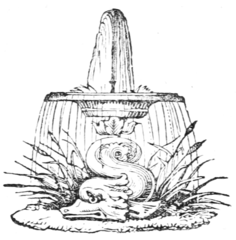 If you are going to have a successful garden in an arid climate, you need a spring, river or other source of water. The Bible celebrates the “garden fountain, a well of living water” (Song 4:15), the “watered garden” (Isa 58:11; Jer 31:12), water channels that drench a garden (Sir 24:30-31), even a river in the Garden of Eden (Gen 2:10). Gardens also must have enough water to take a bath (Daniel 13:15||Susanna 1:15). The “watered garden” is also mentioned in other ancient Near Eastern literature (ANET 577, 641, 649). In addition, royal gardens were celebrated for their exotic spices, flowers and trees (e.g. Song 4:14).
If you are going to have a successful garden in an arid climate, you need a spring, river or other source of water. The Bible celebrates the “garden fountain, a well of living water” (Song 4:15), the “watered garden” (Isa 58:11; Jer 31:12), water channels that drench a garden (Sir 24:30-31), even a river in the Garden of Eden (Gen 2:10). Gardens also must have enough water to take a bath (Daniel 13:15||Susanna 1:15). The “watered garden” is also mentioned in other ancient Near Eastern literature (ANET 577, 641, 649). In addition, royal gardens were celebrated for their exotic spices, flowers and trees (e.g. Song 4:14).
The Garden of Eden is the Prototype of the Promised Land
The Bible repeatedly portrays the Promised Land as a new Garden of Eden. Lot looks out over the land and sees that it “was well watered everywhere like the garden of the Lord” (Gen 13:10 RSV). Similarly Moses will contrast the Promised Land to Egypt and explain how the new Land is so much better, it “drinks water by the rain from heaven” and is cared for directly by the Lord himself (Deu 11:10-12). This concept comes up again a few times when the land is called “a garden land” (Mic 7:14) or “like the garden of Eden” (Joel 2:3). The Garden of Eden is the ideal, but the Promised Land does a good job approximating its flourishing bounty.
Gardens are like Temples
 The Garden of Eden is also called the “garden of Yhwh” (Gen 13:10; Isa 51:3) and the “garden of Elohim” (Ezek 28:13; 31:8-9). The Garden of Eden was the place where Yhwh dwelt—similar to a garden being the site where the Ugaritic god, El, dwelt. El’s garden is also the site of the Ugaritic divine council, where multiple gods meet to discuss (See ABD, “Garden of God”). A river rushes out from Eden, so it makes sense that a river should also rush out from the Temple (Ezek 47; Zech 14; Joel 4). While the temple in Jerusalem is rarely compared to a garden in a direct manner, it does happen: He has broken down his booth like that of a garden, laid in ruins the place of his appointed feasts (Lam 2:6 RSV). The walls of the garden and the fact it has a door make it feel like a building, like a temple that is open only to the heavens. God dwells in the garden and so God dwells in the temple, where he is worshipped. The Jerusalem temple took advantage of these garden motifs in its decoration, with two bronze pomegranate “trees” for pillars, with a huge basin of water and, of course, with walls and a door. Eden is Yhwh’s “natural temple,” the garden where he is king, while the Temple is a kind of “artificial Eden” where he chooses to dwell. The king’s gardener then is a foreshadowing of a temple priest.
The Garden of Eden is also called the “garden of Yhwh” (Gen 13:10; Isa 51:3) and the “garden of Elohim” (Ezek 28:13; 31:8-9). The Garden of Eden was the place where Yhwh dwelt—similar to a garden being the site where the Ugaritic god, El, dwelt. El’s garden is also the site of the Ugaritic divine council, where multiple gods meet to discuss (See ABD, “Garden of God”). A river rushes out from Eden, so it makes sense that a river should also rush out from the Temple (Ezek 47; Zech 14; Joel 4). While the temple in Jerusalem is rarely compared to a garden in a direct manner, it does happen: He has broken down his booth like that of a garden, laid in ruins the place of his appointed feasts (Lam 2:6 RSV). The walls of the garden and the fact it has a door make it feel like a building, like a temple that is open only to the heavens. God dwells in the garden and so God dwells in the temple, where he is worshipped. The Jerusalem temple took advantage of these garden motifs in its decoration, with two bronze pomegranate “trees” for pillars, with a huge basin of water and, of course, with walls and a door. Eden is Yhwh’s “natural temple,” the garden where he is king, while the Temple is a kind of “artificial Eden” where he chooses to dwell. The king’s gardener then is a foreshadowing of a temple priest.
So, next time you come across the word, “garden,” in the Bible, remember that we’re not talking about roses or cucumbers, but about a private, walled, royal garden with a spring-fed fountain. The garden’s walls make it feel like a temple and it is a place where God dwells, the place from which the water of life goes gushing forth.
Image credit: Pauline Eccles, Small door in old stone wall – geograph.org.uk – 486910, CC BY-SA 2.0

